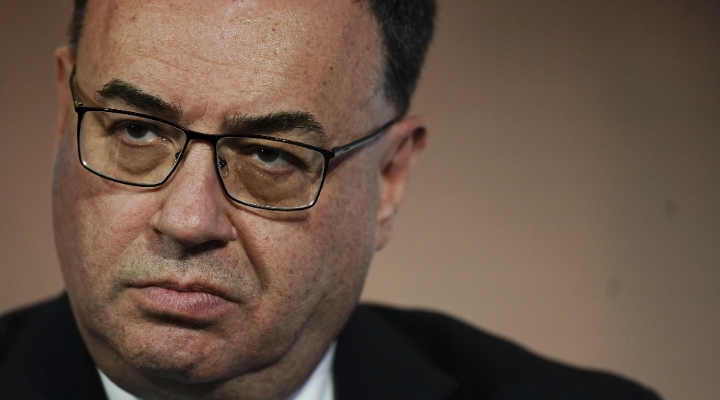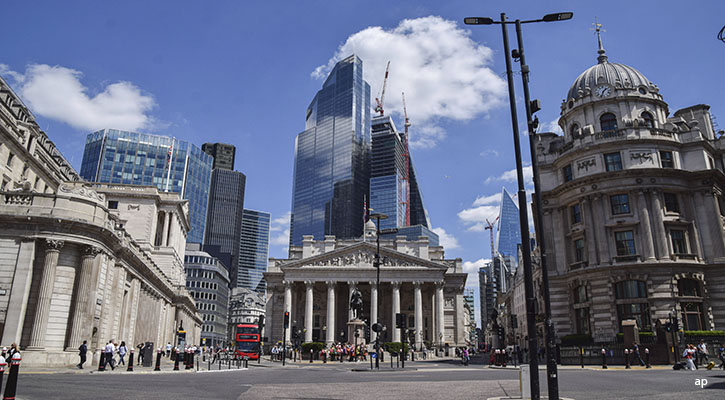A drop in the headline inflation rate below 10% will have been greeted with relief by the government and Bank of England today, but ongoing high food costs and rising core inflation means British households will not be celebrating at all.
According to the Office for National Statistics (ONS), the consumer prices index (CPI) rose by 8.7% in April, down from 10.1% in March and 10.4% in February. CPI broke through the 10% mark in September 2022 and hit 11.1% in October 2022. CPI has been in double figures since September and interest rates have been hiked to tackle the phenomenon.
“While today’s announcement shows headline CPI is back into single digits, it is impossible to put a positive spin on the rise in core inflation back to 6.8% and 19.1% price increase in food and non-alcoholic beverages. These prints mean we will be seeing more interest rate rises this year by the Bank of England,” says Mark Preskett, senior portfolio manager for Morningstar Investment Management Europe.
Falls in utility bills helped pull the headline figure down, but on the other side, usedcars and tobacco prices rose. Food inflation was 19.1% in April, down from 19.2% in March. While supermarket and business input costs have started falling, this has yet to register at the checkout – and food costs are rising as quickly as they did in the late 1970s.
“A decline in the headline rate of inflation hides a very uncomfortable trend in prices,” says RBC Brewin Dolphin chief strategist Guy Foster.
“April’s prices still rose at their second fastest pace over the last twelve months – exceeded only by last October, with its attendant rise in utilities bills. Gas and electricity prices fell by around 1% each, having risen by more than 60% a year ago.”
Energy bills are expected to fall by around £400 a year on average this summer, but food costs have now displaced energy as consumers' main worry.
Chancellor Jeremy Hunt said today food bills remain “worringly high” and there is talk of a government intervention in the supermarket sector to keep a lid on prices. This would follow the Energy Price Guarantee (EPG), which was brought in last October to reduce household bills – and runs until June 2023. On top of that bills were discounted by around £66 each month in a scheme has since ended.
The government has pledged to “halve inflation” by the end of this year and the Bank of England predicts the UK’s inflation will fade to 8.2% in the second quarter, 3.4% in 2024 and 1.1% in 2025. (The forecasts were altered from 8.5%, 1.0% and 0.8%.)
Forecasts themselves are a mixture of economic modelling with a dash of wishful thinking. Inflation forecasts in particular have made the forecasters look foolish this year as high prices stick around. Foster now thinks the government’s pledge, made at a time when inflation looked to have turned, is now a real challenge.
Where Next for Rates?
Does today’s data put further pressure the Bank of England? It hiked rates to 4.5% in its latest meeting and is expected to raise rates again on June 22. Today’s CPI figure was above its forecasts for an 8.4% rise and is likely to keep the rate-hiking cycle on track.
There is growing disquiet about its forecasting abilities and handling of the current crisis – the Bank’s inflation target is 2% and the current level is still more than four times that.
In a bruising encounter with MPs yesterday, the Bank’s chief economist Huw Pill acknowledged its economic forecasting models have led to mistakes.
“We recognise our forecasts on inflation have been too low. We are trying to understand why we have made those errors, interpret those errors in terms of the behaviour, and make an assessment in terms of how it will continue,” he said.
Rob Dishner, senior portfolio manager on the multi-sector fixed income team at Neuberger Berman, says today’s data will keep the pressure on the Bank to keep hiking.
Market expectations have now moved up 5% for peak interest rates, says Orla Garvey, senior portfolio manager for fixed income at Federated Hermes.
“The market has moved to push the Bank of England terminal rates to 5.35% by the end of this year, which would constitute roughly three more 25 basis point hikes beginning next month in June,” she says.
On a CPI measure, UK inflation is still above the United States (5%) and the Eurozone, where inflation increased to 7% in April from 6.9% in March. The Federal Reserve has indicated it will at least pause its rate-hiking cycle.
Stripping out food and energy costs, which have been rampant in the last year, gives us “core” inflation – a measure some economists prefer because it’s less volatile and gives a more precise picture of pressures in the economy. Under this measure, inflation isn’t falling – it hit a 31-year high of 6.8% in April.
My colleague Sunniva Kolostyak has charted the change in different inflation inputs since April 2021 (above) and this shows how food and non-alcoholic drinks, as well as furniture, have grown substantially. Energy bills come under “household services” and you can see the trend line expand significantly in the months from April 2021 but then contract in April 2023.
The chart below shows monthly changes to inflation components.
The author or authors do not own shares in any securities mentioned in this article. Find out about Morningstar's editorial policies.



























